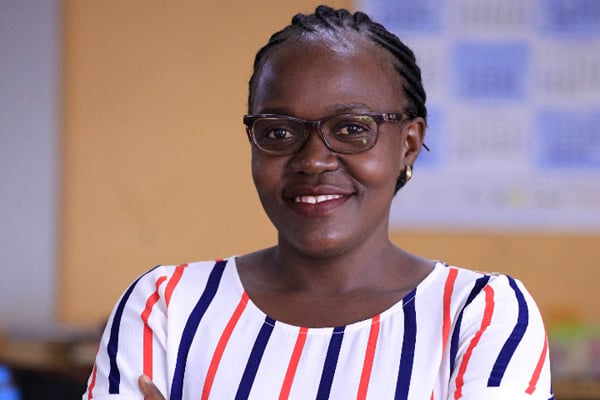Prime
Court dismisses case against Watoto Church’s tough wedding rules

Watoto Church’s main branch on Bombo Road in Kampala. PHOTO/FILE
What you need to know:
- The judges observe that the petitioner, Mr Michael Aboneka, had the option of wedding from other churches.
The petition challenging the tough wedding rules, including presenting current HIV negative test results in order for one to wed from Watoto Church, has been dismissed for lack of merit.
In a unanimous decision of the Constitutional Court delivered yesterday, five justices observed that the petitioner, Mr Michael Aboneka, had the option of wedding from other churches if he did not want to play by their rules.
“Conclusively, the respondent (Watoto Church) as an organisation, has the right to make guidelines that it considers necessary to facilitate its obligation and achieve its objectives. One cannot claim that there was a violation of their rights at one worship centre, especially when there are other available worship institutions to accommodate their individual religious requirements.
“I would prefer to protect the broader objective of an institution of worship more than individual’s freedom to manifest religion,” ruled Justice Christopher Gashirabake, who wrote the lead judgment.
“The fact that the petitioner did not return to the respondent after filing the form, is evidence that he was not willing to participate and as such, he chose not to participate in their practices.
“Consequently, it is my finding that the respondent cannot be held in violation of Articles 27, 31 and 33. These guidelines only applied to the members of the respondent institution. They do not affect anyone that has not voluntarily agreed to them like the petitioner (Mr Aboneka) in this matter. The petitioner has a range of other worship centres to conduct his marriage,” he added.
The court further observed that Mr Aboneka had a choice of getting married under other constitutionally recognised forms such as Civil, Hindu, Islam or customary.
The other justices were Monica Mugenyi, Christopher Madrama, Fredrick Egonda Ntende and Elizabeth Musoke.
In June 2018, Mr Aboneka sued the Born-Again church, saying he was stranded after the church imposed what he considered stringent conditions before he could be allowed to tie the knot with his bride on October 27, that same year.
Mr Aboneka had in his petition, listed a letter of consent (blessing) from the parents of the bride-to-be, a pastor’s endorsement of fitness for marriage, evidence of recent HIV status test results from one of the three specified hospitals and a church pre-marital counselling report issued as some of the prohibitive and unconstitutional conditions.
Further in their judgment, the justices likened the Watoto Church case to the decision made by the Supreme Court in a case filed by Seventh Day Adventist students against Makerere University, arguing that it was unconstitutional for the institution to hold lectures or exams on Saturday, which is a sabbath day for them.
The Supreme Court in that decision, observed that the students were free to participate or not in the university’s educational programmes held on Sabbath, and were not prevented from believing in and practising their faith.
Reacting to the decision, Lawyer Francis Gimara of ALP Advocates, who represented Watoto in court, welcomed the decision, saying: “We are glad that the court has upheld the guidelines of Watoto Church.”
On the other hand, Mr Aboneka who was condemned to paying the legal costs to Watoto Church, said he was reading and internalising the decision with the hope of appealing to the highest court in the land (the Supreme Court).
The church had in its defence, stated that Mr Aboneka and his bride-to-be, were not members of its congregation, hence they had no locus to institute a law suit against them.
Ms Mariam Nakimenya, the head of legal affairs at Watoto Church, had argued that for anyone to be considered their church member, they must be in one of their home cells that meet once in a week for edification and that upon crosschecking, Mr Aboneka and his bride-to-be were not in any of their home cells.
Decision on key contentious issues
On the issue of presenting HIV negative test results before being wedded, the justices held that Watoto’s policy did not show that HIV testing was forceful.
The justices also took into consideration that Aids being a highly infectious disease, it was justifiable for Watoto Church leadership to demand negative results as long as they kept them confidential.
“It is without doubt that someone’s HIV status has a very big influence on the decision they make, yet notoriously, couples have continued to hide their status from intending partners to their prejudice. The failure to disclose the HIV status in a way, violates Article 31 (3), that requires willingness of the partner in consenting to marriage,” ruled justice Gashirabake.
On the issue of obtaining a letter of consent from the parents of the bride-to-be, being discriminatory since the same rules did not apply to the groom-to-be, the justices held that women are considered to be among the marginalised groups in society, hence the consent letter is intended to protect them.
“The differential treatment can be explained by the unique status of women that requires protection from abuse. Furthermore, considering family history, different traditions in this nation forced girls into marriage for different reasons. As explained by the respondent (Watoto Church), this letter seeks to clarify the willingness of the bride-to-be get married,” held the justices





